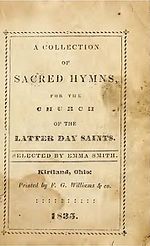
A Collection of Sacred Hymns, for the Church of the Latter Day Saints. was the first hymnal of the Latter Day Saint movement. It was published in 1835 by the Church of the Latter Day Saints.

A Collection of Sacred Hymns, for the Church of the Latter Day Saints. was the first hymnal of the Latter Day Saint movement. It was published in 1835 by the Church of the Latter Day Saints.
In July 1830, Joseph Smith stated he received a revelation from God for his wife, Emma, to select hymns for the Church of Christ:
And it shall be given thee, also, to make a selection of sacred hymns, as it shall be given thee, which is pleasing unto me, to be had in my church. For my soul delighteth in the song of the heart; yea, the song of the righteous is a prayer unto me, and it shall be answered with a blessing upon their heads. [1]
Initially, it seems that this revelation was interpreted to mean that Emma Smith was commanded to select which hymns were appropriate for use in the worship services of Latter Day Saints and not necessarily to compile a hymnbook. [2] Due in part to this ambiguity in the revelation and in part to persecutions and the constant uprooting of the church in those early days, she was not able to compile a hymnbook for several years. However, in the meantime, other followers continued to write, arrange, and collect hymns.
The first Latter-day Saint hymns were published by W. W. Phelps in June, 1832 in Independence, Missouri. These appeared as text only (no music) in The Evening and the Morning Star , the church's semimonthly newspaper. Many of these lyrics were written by Phelps, while others were borrowed from various Protestant sources and edited by Phelps. The first of these hymns published by Phelps was "What Fair One Is This".
On July 20, 1833, a mob destroyed the church's printing office in Independence, and the publication of the Star was moved to Kirtland, Ohio – the headquarters of the church at that time. In December, 1834, The Evening and the Morning Star was replaced by a new publication: The Messenger and Advocate . Phelps continued to write and collect hymn texts, with assistance from Frederick G. Williams and others.
On September 14, 1835, at a meeting of the high council and the First Presidency at Kirtland, Emma Smith was again counseled to begin compiling a hymnbook in a joint effort with W. W. Phelps:
It was further decided that Sister Emma Smith proceed to make a selection of Sacred Hymns, according to the revelation; and that President W.W. Phelps be appointed to revise and arrange them for printing. [3]
Emma Smith selected 90 hymn texts for the hymnal, 35 of which were written by Latter-day Saints. Many of these texts were revised or corrected by W. W. Phelps to fit with the theology of the early Latter Day Saint church.
The title page states 1835 as the publication date, but because of the printing of the Doctrine and Covenants the same year, printing of the hymnal was not completed until February 1836. [4]
The book is small – just 3" by 41⁄2" in size. An indication of the poverty of the church members in Kirtland at that time is that the hymnal was published in "sexadecimal" form, the least expensive publishing format for books in those days: sixteen pages were printed on both sides of a single sheet, which was then folded, cut, and sewn into the leather binding. Thus, the entire hymnbook could be printed on just four large sheets of paper. The completed hymnal contained ninety hymns, but only the words were included. As a result, today it is difficult to determine which tunes were used with many of the hymn texts.
Although the book was printed in 1836, it is still referred to as the "1835 hymnal" because of the publication date on the title page. The Kirtland printing of the hymnbook was probably very small – perhaps 500 copies at most. Today, original copies of this hymnbook are extremely rare; less than a dozen are known to exist. On December 5, 2006, an original 1835 hymnal was sold at Christie's Auction House in New York City for $273,600. [5]
The English-language hymnal used by Latter-day Saints today contains 26 songs from this original LDS hymanal, including “The Spirit of God” and “I Know That My Redeemer Lives.”
† Included in the 1985 LDS Hymnal
§ Included in the 2013 Community of Christ Sings hymnal
Many of the hymns which had previously been published in The Evening and the Morning Star were inserted into the 1835 hymnal as a block, almost exactly in the same order as their earlier publication. Eleven of the hymns were also published in The Messenger and Advocate between December 1834 and January 1836:
| E&MS | Date | 1835 Number | M&A | Date | 1835 Number | |
|---|---|---|---|---|---|---|
| 1:1 | Jun 1832 | 3, 4, 5, 6, 10 | 1:3 | Dec 1834 | 63 | |
| 1:3 | Aug 1832 | 7, 8, 9 | 1:9 | Jun 1835 | 23, 24 | |
| 1:4 | Sept 1832 | 11, 12 | 1:10 | Jul 1835 | 41, 57 | |
| 1:5 | Oct 1832 | 13, 14 | 1:11 | Aug 1835 | 43 | |
| 1:6 | Nov 1832 | 15 | 1:13 | Oct 1835 | 26, 28 | |
| 1:9 | Feb 1833 | 16,17 | 1:14 | Nov 1835 | 65 | |
| 1:10 | Mar 1833 | 18 | 2:16 | Jan 1836 | 71, 90 | |
| 1:11 | Apr 1833 | 53 | ||||
| 1:12 | May 1833 | 19 | ||||
| 2:13 | Jun 1833 | 20, 21 | ||||
| 2:14 | Jul 1833 | 22 | ||||
| 2:15 | Dec 1833 | 29 | ||||
| 2:19 | Apr 1834 | 30, 31, 32 | ||||
| 2:20 | May 1834 | 33 |

A hymnal or hymnary is a collection of hymns, usually in the form of a book, called a hymnbook. They are used in congregational singing. A hymnal may contain only hymn texts ; written melodies are extra, and more recently harmony parts have also been provided.
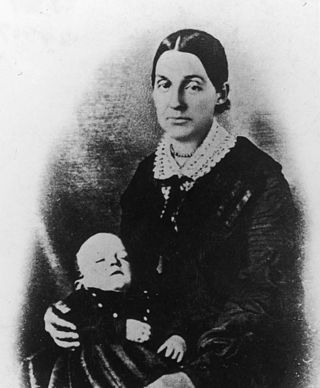
Emma Hale Smith Bidamon was a leader in the early Latter Day Saint movement and a prominent member of the Reorganized Church of Jesus Christ of Latter Day Saints as well as the first wife of Joseph Smith, the movement's founder. In 1842, when the Ladies' Relief Society of Nauvoo was formed as a women's service organization, she was elected by its members as the organization's first president.
"The Spirit of God Like a Fire Is Burning" is a hymn of the Latter Day Saint movement. It was written by W. W. Phelps, one of the most prolific hymnwriters of early Latter Day Saint movement.

William Wines Phelps was an American author, composer, politician, and early leader of the Latter Day Saint movement. He printed the first edition of the Book of Commandments that became a standard work of the church and wrote numerous hymns, some of which are included in the current version of the Church of Jesus Christ of Latter-day Saints' hymnal. He was at times both close to and at odds with church leadership. He testified against Joseph Smith, providing evidence that helped persuade authorities to arrest Smith. He was excommunicated three times and rejoined the church each time. He was a ghostwriter for Smith. Phelps was called by Smith to serve as assistant president of the church in Missouri and as a member of the Council of Fifty. After Smith's death, Phelps supported Brigham Young, who was the church's new president.
"Joy to the World! The Lord Will Come" is an adaptation by W. W. Phelps of the popular Christmas carol "Joy to the World". The adapted song was included in A Collection of Sacred Hymns, the first Latter Day Saint hymnal, which was prepared for publication in 1835 and published in February 1836 as well as all English-language hymnals published by the LDS Church since 1948.
"Adam-ondi-Ahman" is an LDS hymn and was included in the first Latter Day Saint hymnal and quickly became one of the most popular songs of the early church. It was published in 1835 in Messenger and Advocate and is hymn number 49 in the current LDS Church hymnal.

A Christian child's prayer is Christian prayer recited primarily by children that is typically short, rhyming, or has a memorable tune. It is usually said before bedtime, to give thanks for a meal, or as a nursery rhyme. Many of these prayers are either quotes from the Bible, or set traditional texts.
Hymns are an important part of the history and worship of the Church of Jesus Christ of Latter-day Saints.

Hymns of the Church of Jesus Christ of Latter-day Saints is the official hymnal of the Church of Jesus Christ of Latter-day Saints . Published in English in 1985, and later in many other languages, it is used throughout the LDS Church. This article refers to the English version. The book was published on the 150th anniversary of the publication of the first LDS hymnbook, compiled by Emma Smith in 1835. Previous hymnbooks used by the church include The Manchester Hymnal (1840), The Psalmody (1889), Songs of Zion (1908), Hymns (1927), and Hymns (1948).
"For the Beauty of the Earth" is a Christian hymn by Folliott S. Pierpoint (1835-1917).
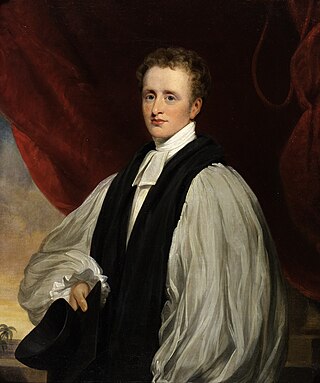
"Holy, Holy, Holy! Lord God Almighty!" is a Christian hymn written by the Anglican bishop Reginald Heber (1783–1826).
"Fairest Lord Jesus", also known as "Beautiful Savior" or "Crusader's Hymn", is a Christian hymn. It was originally a hymn in German first printed in 1677, "Schönster Herr Jesu".
Hymnology is the scholarly study of religious song, or the hymn, in its many aspects, with particular focus on choral and congregational song. It may be more or less clearly distinguished from hymnody, the creation and practice of such song. Hymnologists, such as Erik Routley, may study the history and origins of hymns and of traditions of sung worship, the biographies of the women and men who have written hymns that have passed into choral or congregational use, the interrelationships between text and tune, the historical processes, both folk and redactional, that have changed hymn texts and hymn tunes over time, and the sociopolitical, theological and aesthetic arguments concerning various styles of sung worship.
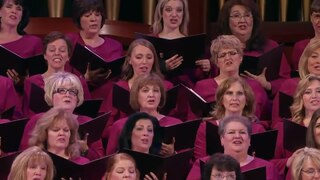
"We Thank Thee, O God, for a Prophet" is a hymn of the Church of Jesus Christ of Latter-day Saints. It has been sung at many general conferences of the LDS Church since it was published in 1863.
"How Firm a Foundation" is a Christian hymn, published in 1787 by John Rippon in A Selection of Hymns from the Best Authors, Intended to be an Appendix to Dr. Watts's Psalms and Hymns, known as "Rippon's Selection." How Firm a Foundation is number 128 in the 1787 first printing. It is attributed only to "K", which probably refers to Robert Keen(e), precentor at Rippon's church, though other names suggested include Richard or John Keene, Kirkham, John Keith or Words by G. Keith and Music by J. Reading as cited in the 1884 publication of Asa Hull's Jewels of Praise. It is most often sung to the tune "Foundation" which first appeared in A Compilation of Genuine Church Music (1832) edited by Joseph Funk, though the original tune may be Keen(e)'s "Geard".
Joseph Stennett was an English Seventh Day Baptist minister and hymnwriter.
"Crown Him with Many Crowns" is an 1851 hymn with lyrics written by Matthew Bridges and Godfrey Thring and sung to the tune 'Diademata' by Sir George Job Elvey. The hymn appears in many hymnals.
In Nauvoo, Illinois, in 1841, Emma Smith published an expanded version of the 1835 Collection of Sacred Hymns . The new hymnal contained 304 hymns, in words-only format. Of these, 77 hymns had been included in the 1835 hymnbook. Many of the hymns included in the 1841 hymnal were more focused on grace, the blood of Christ, and the cross than other LDS hymn collections. Examples include "Amazing Grace", "Come, Thou Fount of Every Blessing", and "When I Survey the Wondrous Cross". After the succession crisis in the early Latter Day Saint movement following Joseph Smith's death, this hymnal was largely ignored in favor of the Manchester Hymnal by those church members who followed the Quorum of the Twelve and moved to the Salt Lake Valley. In the Reorganized Church of Jesus Christ of Latter Day Saints, however, the opposite was true.
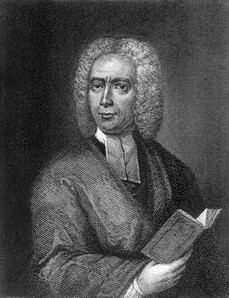
"Alas! and Did My Saviour Bleed" is a hymn by Isaac Watts, first published in 1707. The words describe the crucifixion of Jesus and reflect on an appropriate personal response to this event. The hymn is commonly sung with a refrain added in 1885 by Ralph E. Hudson; when this refrain is used, the hymn is sometimes known as "At the Cross". The final line of the first stanza has attracted some criticism, as it leads the singer to call themselves a "worm". Hymnals often change the line from "for such a worm as I" to "for such a one as I" or "for sinners such as I".